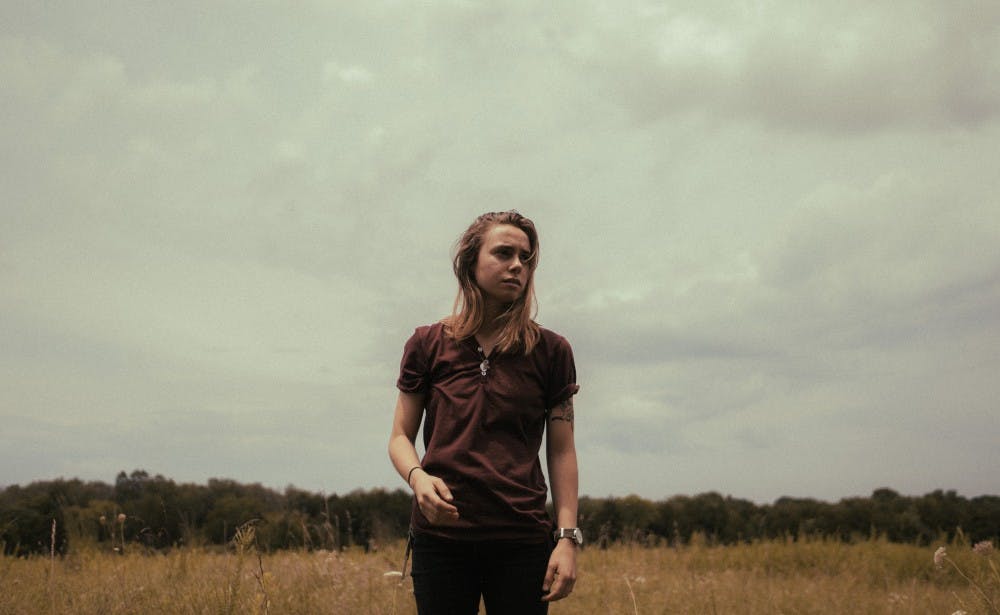Julien Baker, a 21-year-old singer-songwriter, made her debut in 2015 with her album "Sprained Ankle," with plans to release her follow-up album, "Turn Out the Lights," later this month.Her lyrics and voice are passionate, honest and unrelenting. She performed at Haw River Ballroom in Saxapahaw on Friday.
Staff writer Emma Strickland spoke with Julien Baker about her artistic process, her relationship with music and her album coming out on Oct. 27.
The Daily Tar Heel: What should we expect from your upcoming album, "Turn Out the Lights"? How is it different from your previous album, “Sprained Ankle”?
Julien Baker: I think this record is a little bit more cohesive than "Sprained Ankle." I think that I tried to preserve the rawness that came as a byproduct of how the first record was recorded, but allow for exploration of new sounds an instrumentation that would add dynamic to the songs. I think I was also much more intentional about how the songs were structured — both lyrically and musically. I had more time to ruminate on them, and piece them together, and hopefully that comes across in the execution and gives a consistency to the album.
DTH: Do you have a favorite song off of your album? Do you have a favorite song to perform?
JB: It's so hard to choose! As trite as it sounds, the songs really do feel as unique and individually precious as people, it's like picking a single best friend or a favorite child. I think that maybe the song I am most proud of, performance and lyrically speaking, is "Claws in Your Back;" that song was inspired by stories from many of my friends and has a lot of personal emotional significance to me. As far as performing live, I haven't toured the record long enough to gauge how the crowd interacts with the songs off the new record. "Rejoice" has always been maybe my favorite to play live, I think that song is the most honest and expressive I feel onstage singing anything sometimes.
DTH: What is your songwriting process like?
JB: I think the songwriting process for me is something that's constantly occurring in some form. To me I think that every experience we have, the things we hear and see even on the day-to-day, are laden with poetic value and so a lot of how I write begins there. I try to view the world through a poetic lens.
DTH: Do you feel it’s easier to write songs when you’re in love? Heartbroken?




